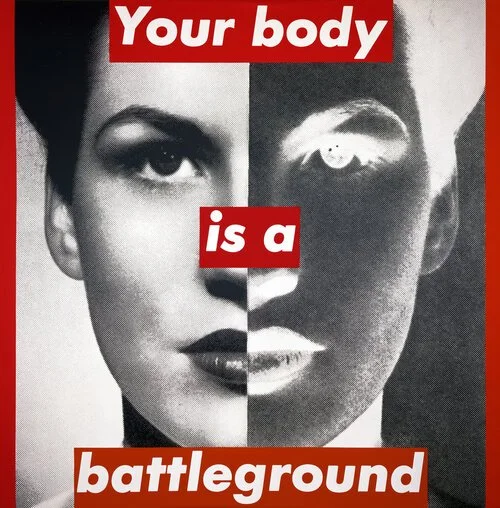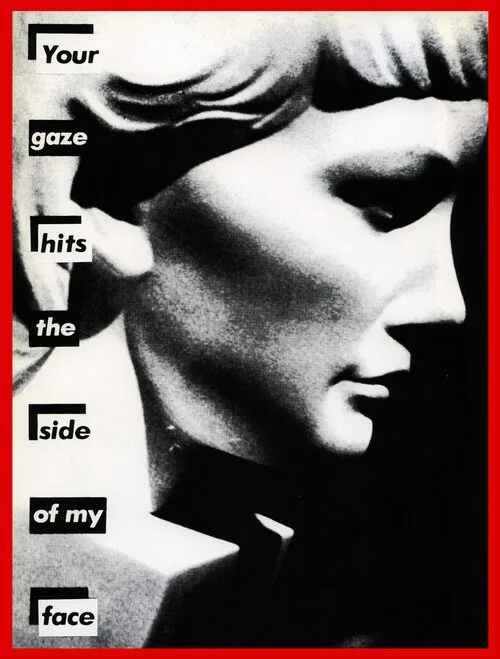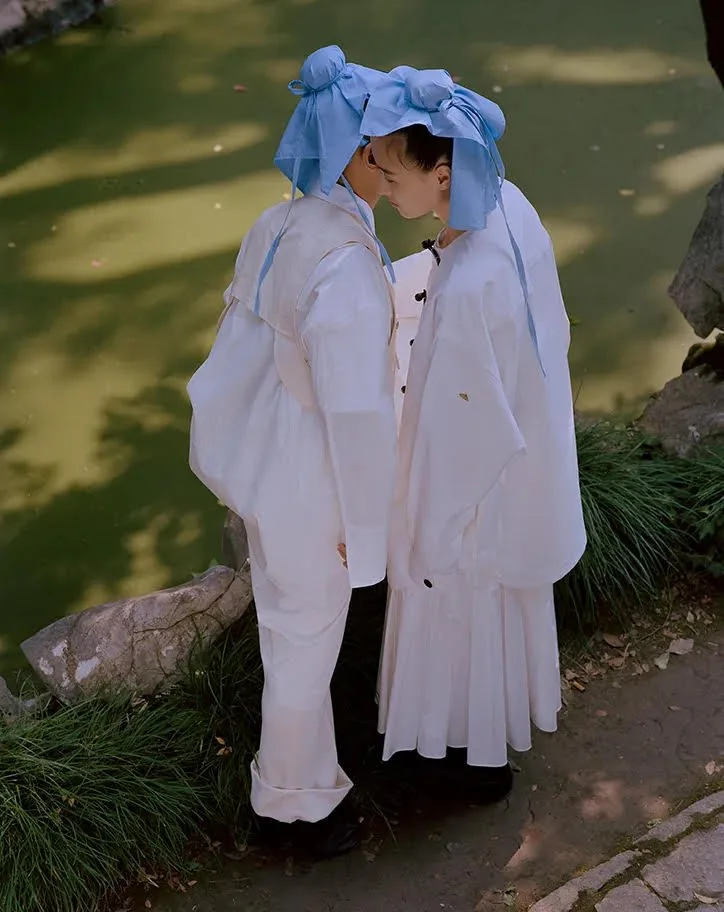From Our Archives: Barbara Kruger
Barbara Kruger. Untitled” (Your body is a battleground), 1989.
Andrea Blanch: Language can create as well as distort meaning. How would you describe your relationship to language in your work?
Barbara Kruger: It varies. In the image work, it’s on top of an image. My large, immersive installations are only text. And in my video, it’s interspersed; sometimes it’s spoken, sometimes it appears as an image. Because the video is time-based and immersive, it asks something else of the viewer. Whereas some of the pictures and words together, it’s a quicker read. That’s the kind of economy you learn at magazines.
Barbara Kruger. “Untitled” (We have received orders not to move), 1982.
Barbara Kruger. “Untitled” (Your gaze hits the side of my face), 1981.
AB: Your work has appeared in a variety of formats outside of galleries and museums, everywhere from postcards to billboards, buses to coffee mugs. What are the reasons for this? Is this an attempt to break out of institutions and address people directly? A comment on commercialism?
BK: It’s a little of both. But it’s also trying to “reach out and touch someone.” There are so many different ways of working and being an artist. The subculture is so professionalized now. Everyone thinks they need an MFA or a PhD, and I have none of those things. That doesn’t mean I wish I didn’t. It would be nice to be a little more educated in a specific way. Nevertheless, some work is more coded than others, and if you don’t crash the code, you don’t get the full meaning of the work. That’s true with abstract and conceptual work. My work, some of it, not all of it, is available on a broader level. You don’t have to have a PhD in conceptual art to understand it. I felt I could occupy a number of sites and still make meaning that, hopefully, promotes doubt, asks questions, and tries to be vigilant. Again, all the work is a series of attempts. I make no great claims for myself. I’ve said before that I’m fortunate that people know my name and my work. The work that is known and not known is so arbitrary. Now that the market has become so narrow, but huge, things have changed for young artists who think they are going to make money off their work. Most artists will never be able to support themselves through their work, even with the inflated market that’s happening now.
For the full version of Barbara Kruger’s interview, check out ISSUE NO. 12 - CONTROVERSY.









